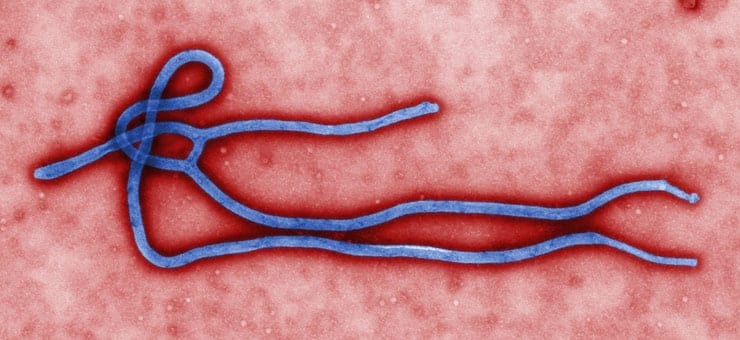A leading Ebola researcher from the National Institute of Allergy and Infectious Diseases (NIAID) is calling for scientists to make their data available to colleagues in real-time to improve the public health response to outbreaks.
“Despite years of research on ebolaviruses and marburgviruses, it is still not possible to administer vaccines or treatments to the at-risk population or medical aid teams,” states Heinz Feldmann, M.D., Ph.D. “If we are to practice cutting-edge medicine, rather than simply outbreak control, we need to advance leading approaches toward approval and licensing. This gap should close over the next several years — if we can continue making progress before Ebola (or a related virus) strikes again.”
He cites past responses to influenza and SARS (severe acute respiratory syndrome) outbreaks as successful examples of global information sharing. Rapid diagnoses are key to controlling outbreaks of deadly viruses such as Ebola, for which no therapies are available. The immediate availability of viral gene sequencing data, for example, can reduce waiting times for test results and help to determine whether established test methods will work or fail.
Regional Diagnostic Approach
Dr. Feldmann conducts research on Ebola and other hemorrhagic fever viruses at NIAID. Among other suggestions, he recommends that medical and public health staff in and near locations known to be endemic for Ebola be trained to assess infection risks and diagnose disease. Enhancing the capabilities of local laboratory workers would make test results available more rapidly by eliminating the need to ship samples to distant reference laboratories.
Dr. Feldmann and his NIAID colleague David Safronetz, Ph.D., explored this regional diagnostic approach while working with Malian health researchers and officials in April, after the nation reported 12 suspected Ebola cases. The NIAID group worked at the International Center for Excellence in Research, a partnership between NIAID and Mali’s University of Bamako, where they observed isolation procedures and showed local physicians how to handle Ebola specimens and test for disease. All of the suspected cases in Mali tested negative.
Read more at the New England Journal of Medicine: Ebola—A Surprise in West Africa?


